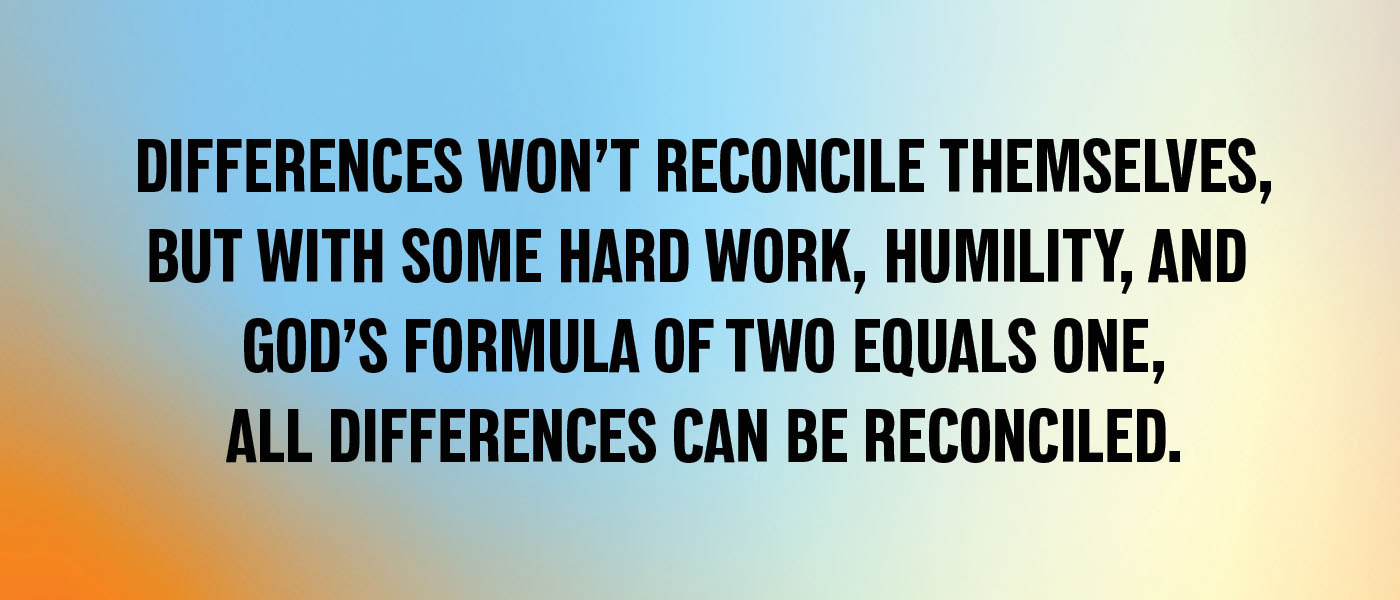Two Equals One: A Devotional for Couples (For Wives)預覽


Complementing, Not Completing
A few years ago, Ian Morgan Cron invited me to be a guest speaker on his Typology podcast. Ian is a master teacher of the Enneagram, a personality test that helps us understand ourselves and one another. His show is full of interesting conversations about life and relationships, and he’s known for his challenging questions.
I was fairly new to podcasting and a bit nervous, so as we were wrapping up, I was silently applauding myself for staying close to the mic and keeping my note cards in order. That’s when Ian looked at me through his thick-rimmed glasses and challenged my entire thesis.
“Is it really helpful to view marriage through the lens of two equals one?” he asked. “Isn’t the point of the journey the differentiation?”
He’s right . . . what’s the difference between codependency and two equals one?
I had a brief moment of panic, and then it clicked. I might’ve been a rookie podcast guest with a thin line of sweat running down my spine, but I had the chance to make a very important distinction.
It’s true that there is a codependent way to approach this equation for marriage, especially when one spouse tends to overpower the other. Two equals one could turn into one spouse running the entire show while the other lays down all the things that make them different and unique in an attempt to appease the other. But that’s not the true version of the equation.
The true version of two equals one is an invitation to love everything different about your spouse. “Two equals one is two completely different, separate human beings with completely different giftings, talents, and wounds coming together as one,” I told him.
I went on to explain that coming together means leveraging your differences. It’s not about enabling each other but empowering one another. Your differences don’t have to create resentment and separation; they can bring you together. That turned the whole conversation.
A loving marriage isn’t about finding everything you need in another person. It actually means the opposite. It means you choose not to let your differences divide you. One of the most beautiful things about marriage is that it’s between two people who are different from each other.
The question “Is my spouse everything I need them to be?” then becomes “How can I love everything that’s different about my spouse?” This may mean sacrificing some of your independence but not your individuality. It doesn’t mean we stop being who we are to cater to our spouse; when two equals one, you find out how to become more of who you are. And your spouse is the one encouraging you to be who you are. A loving marriage is two different individuals working as a team. The day we stopped letting our differences divide us, they began to bring us together again.
Our marriage proves that the differences can make you stronger instead of dividing you— if you’re willing to do the work. Differences won’t reconcile themselves, but with some hard work, humility, and God’s formula of two equals one, all differences can be reconciled.
Respond
- What are some of the differences between you and your spouse?
- Do your differences make your relationship stronger? How?
Prayer
Lord, I surrender my spouse to You. I ask that You teach us to be sensitive, encouraging, and loving as we work through differences. We want a marriage that reflects You!
關於此計劃

These five daily readings are based on the book Two Equals One: A Marriage Equation for Love, Laughter, and Longevity by Jimmy Rollins and Irene Rollins. Wherever your marriage is currently, Jimmy and Irene want to help you get back to a place of love, laughter, and longevity. A place where two equals one.
More






